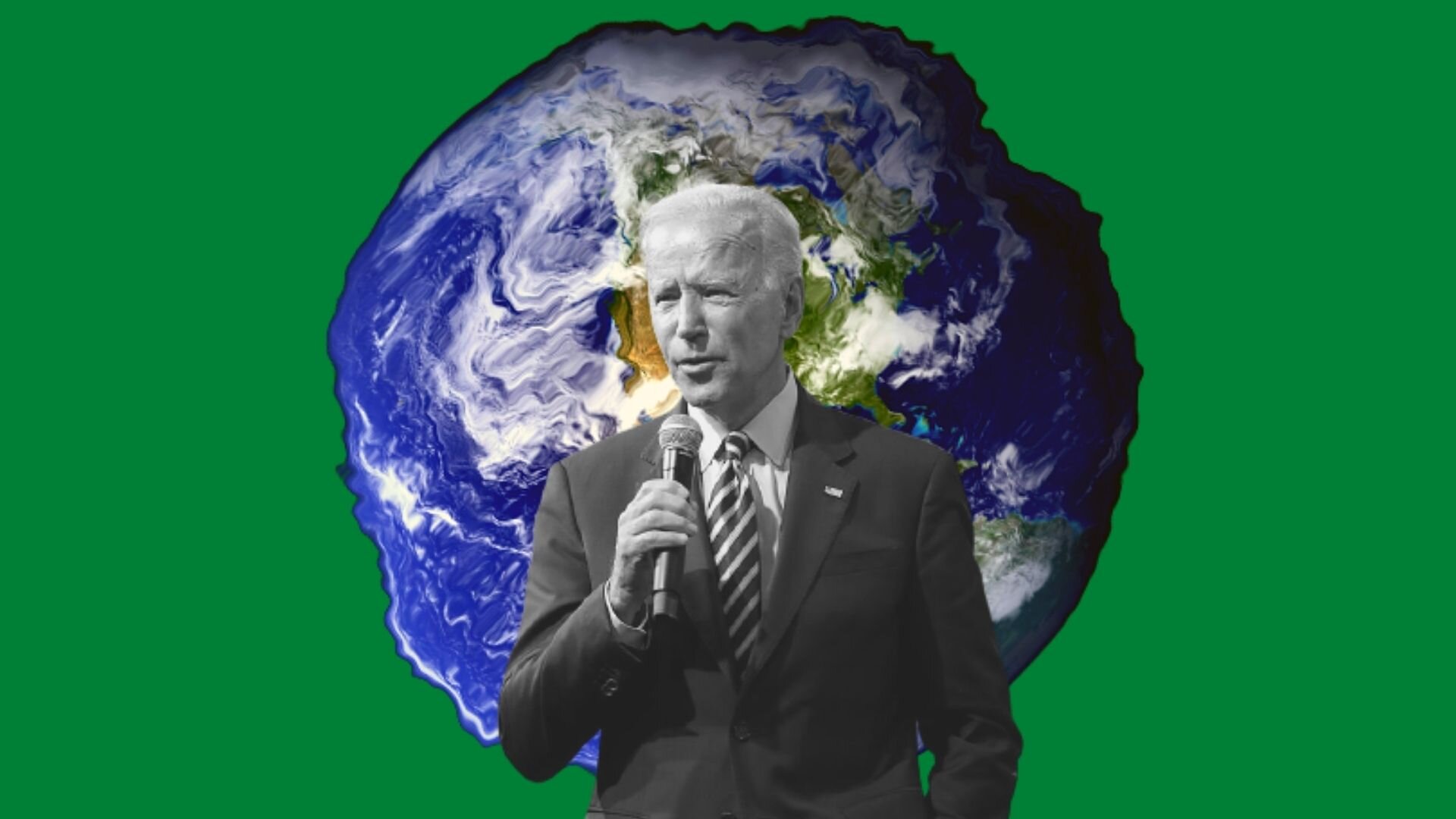Biden’s climate plan: the solution to a pandemic and long-term crisis
Illustration by Srishti Khemka; source image found here
DARIA FARMAN-FARMAIAN: Joe Biden’s presidential campaign made sweeping promises to citizens on climate change. He pledged to move towards a carbon-free energy sector by 2035 and to eliminate all CO2 from the U.S. economy by 2050. Now, as president, Biden must move quickly in order to fulfill these ambitious plans.
If the last two weeks of this presidency are any indication of future action, the new administration is on track to do so, having already signed more than three dozen executive orders in his first week of office, which is more than any other president. Biden has taken meaningful executive action to repair the damage of Trump’s climate legacy by halting any recently enacted regulations that were not in effect by Inauguration day. In addition, he has taken steps to rejoin the Paris Climate Agreement and has directed federal agencies to incorporate climate change reform into their missions. He also has plans to stop the construction of the Keystone XL pipeline as well as oil and gas drilling on federal lands and water.
Experts are confident that the success of President Biden’s plans can slow the progress of climate change and make real differences in the daily lives of those who suffer from the effects of it. Not only is he pivoting completely from Trump’s climate platform, but also he is taking steps far beyond what former President Obama promised and accomplished during his presidency.
But for many Americans, climate change—a long-term, slow-moving problem—is currently on the backburner of priorities as they try to recover from the worst economic effects of the ongoing pandemic. President Biden faces a lot of criticism as some argue that his climate goals will destroy jobs at a moment when the country is already suffering from record high unemployment due to COVID-19.
However, Biden plans to merge climate and economic goals by rebuilding the economy with 10 million new, green, good-paying jobs. He envisions a movement towards a more sustainable future that involves “American innovation, American products, American labor” which will “put millions of Americans to work modernizing our water systems, transportation, our energy infrastructure to withstand the impacts of extreme climate.” He firmly believes that the most prosperous way forward is with clean energy.
And he is right. In fact, the economy is expected to grow as new jobs that are created outweigh those lost from the shrinking coal and oil industry alongside the COVID-19 pandemic. According to the US Bureau of Labor Stats, America’s two fastest growing jobs through 2026 are related to renewable energy: solar installer and wind technician. This shift towards renewable energy will provide more jobs with higher wages as coal and oil jobs are predicted to continue falling in the coming years. This fall is largely because of mechanization—even though there was more mining, the coal industry lost 58 percent of its jobs between 1980 and 2015, and is still seeing losses today.
Moreover, building new renewable energy has proven to be getting continually cheaper than running existing coal plants. By 2025, basically all U.S. coal plants will be more expensive than alternatively building wind and solar facilities within 35 miles of each plant. Evidently, the United States is at a crossover point where falling wind and solar prices make operating only three-quarters of all coal generation plants more expensive than creating new renewable energy.
Critics are concerned about transferring expertise between the fossil fuel and clean energy industry as well as the fact that renewable jobs can’t directly replace every coal job. However, according to Forbes, the expanding demand for wind and solar power is “creating new economic transition opportunities for coal power plants and mine workers along with communities in which they live.” These new, green jobs are widely available to workers lacking higher education, making them more accessible and equitable. In fact, the majority of energy sector jobs are needed for both fossil and non-fossil energy projects, thus many jobs are easily transferable.
The movement from a president that openly mocked climate change to one who prioritizes it may be jarring, but it is only through these changes that the United States will be able to get back on track in the fight against this urgent issue. In order to create a stronger economy, foster more resilient American communities, and stop the most devastating effects of global warming, Biden must remain ambitious with his climate plan.
Daria Farman-Farmaian is a sophomore in Georgetown's School of Foreign Service from New York City. She is interested in global issues surrounding gender, climate change, human development and democracy.

